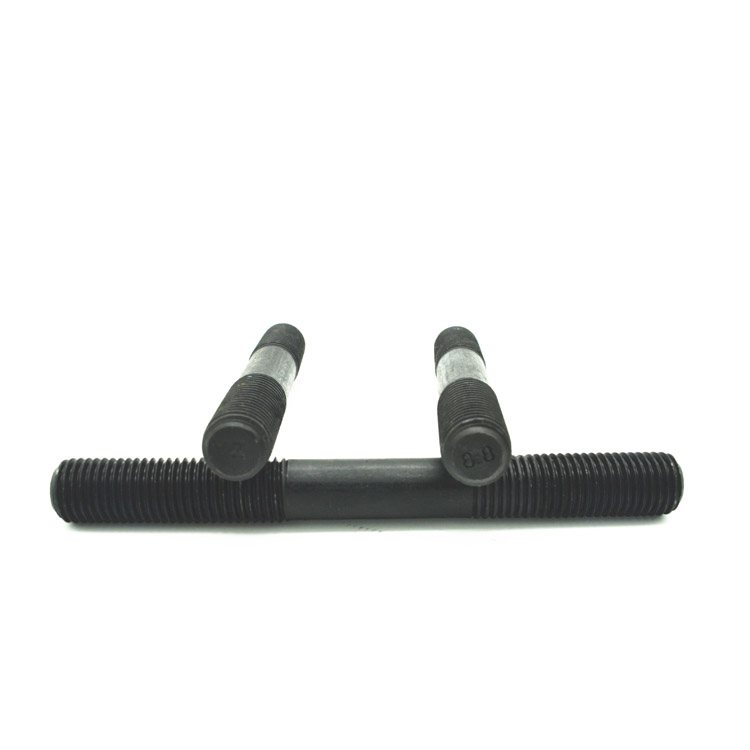Ball Head Stud Bolt Manufacturer for High-Quality Fastening Solutions in Various Industries
Aug . 21, 2024 10:43 Back to list
Ball Head Stud Bolt Manufacturer for High-Quality Fastening Solutions in Various Industries
The Ball Head Stud Bolt Factory A Hub of Innovation and Quality
In the realm of manufacturing, the production of specialized fastening solutions is essential for countless industries, ranging from automotive to aerospace. Among these solutions, ball head stud bolts have emerged as a key component, delivering not only strength but also versatility in various applications. This article explores the significance of the ball head stud bolt factory, highlighting its importance in the manufacturing sector.
Understanding Ball Head Stud Bolts
Ball head stud bolts are specialized fasteners that feature a spherical head, allowing for a unique range of motion and flexibility. These bolts are commonly used in situations where traditional fastening methods may be unsuitable. The ball head design enables easier alignment and assembly, particularly in applications that require angular adjustments. Such innovative design makes them invaluable in machinery, automotive parts, and structural applications.
The Manufacturing Process
The production of ball head stud bolts involves precise engineering and quality control measures. The manufacturing process typically starts with high-grade raw materials, such as carbon steel or stainless steel, chosen for their strength and durability. The initial stage involves forging, where raw materials are shaped under high pressure to form the basic stud and head.
Once shaped, the bolts undergo heat treatment to enhance their mechanical properties, increasing their resistance to wear and tear. Following this, a series of finishing processes such as machining, polishing, and coating are applied. These steps not only improve aesthetic qualities but also contribute to corrosion resistance and longevity. Rigorous testing is essential throughout the manufacturing process to ensure that each bolt meets industry standards and customer specifications.
Quality Assurance
ball head stud bolt factory

Quality assurance is a cornerstone of any reputable ball head stud bolt factory
. Implementing ISO standards, manufacturers maintain stringent quality control processes to monitor every stage of production. This includes non-destructive testing methods, such as ultrasonic testing and magnetic particle inspection, to detect any internal defects.Manufacturers also invest in advanced machinery and technology, which allows for high precision and efficiency in production. The combination of skilled labor and automated processes results in products that boast both reliability and consistency. Maintaining high-quality standards not only secures customer trust but also opens doors to new markets.
Applications Across Industries
Ball head stud bolts find usage in a variety of sectors. In the automotive industry, they are employed in suspension systems, allowing for enhanced performance and safety. In aerospace, these fasteners contribute to the assembly of lightweight and high-strength components, critical for aircraft efficiency.
Additionally, infrastructure projects also benefit from the use of ball head stud bolts, where the flexibility and robustness of these fasteners play a crucial role in structural integrity. Their ability to accommodate angular adjustments makes them suitable for dynamic environments, where traditional bolts may fail.
The Future of Ball Head Stud Bolt Manufacturing
As industries continue to evolve, the demand for innovative fastening solutions like ball head stud bolts is likely to increase. The rise of automation, coupled with advancements in materials science, broadens the scope for manufacturing techniques. Factories are now exploring sustainable practices, including eco-friendly materials and energy-efficient processes, to meet both market demand and environmental responsibilities.
In conclusion, the ball head stud bolt factory stands as a testament to modern manufacturing excellence. Through a combination of innovative design and rigorous quality control, these factories ensure that their products meet the diverse needs of various industries. Ultimately, the impact of ball head stud bolts extends beyond mere fastening; they represent the intricate relationship between technology, engineering, and quality craftsmanship. As we look towards the future, the role of such specialized factories will only grow in importance, driving advancements across countless applications.
Latest news
-
Automatic Flush Bolts for Double Doors - Reliable Security, Easy Installation, Factory Direct Supply
NewsJul.05,2025
-
High-Quality 11mm Bolts Manufacturer Reliable 11mm Bolts Factory & Suppliers
NewsJul.05,2025
-
High-Quality DIN975 Thread Rods Manufacturer Reliable Factory & Suppliers
NewsJul.05,2025
-
High-Quality Strut Washers – Reliable Strut Washers Factory & Trusted Company Suppliers
NewsJul.04,2025
-
Premium Wood Screws for Flooring - Reliable Wood Floor Screws Company & Suppliers
NewsJun.24,2025
-
High-Quality Cabinet Bolts – Reliable Factory, Trusted Company & Leading Suppliers
NewsJun.10,2025
Warning: Undefined array key "ga-feild" in /home/www/wwwroot/HTML/www.exportstart.com/wp-content/plugins/accelerated-mobile-pages/templates/features.php on line 6714
